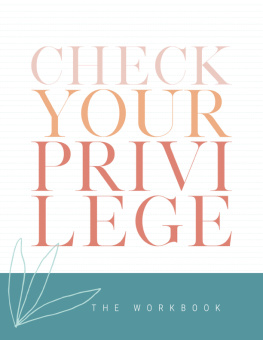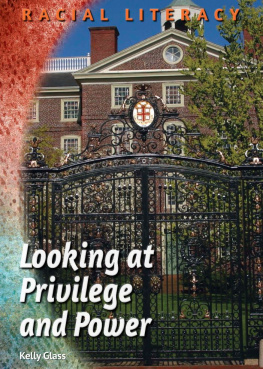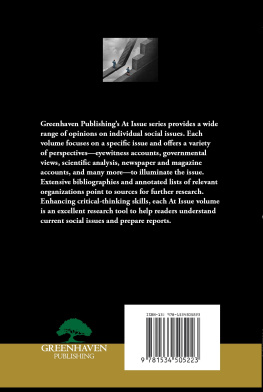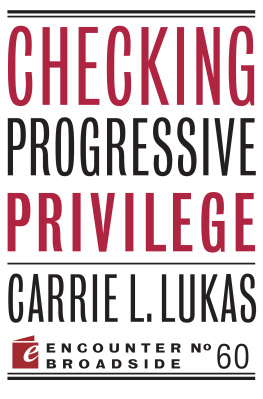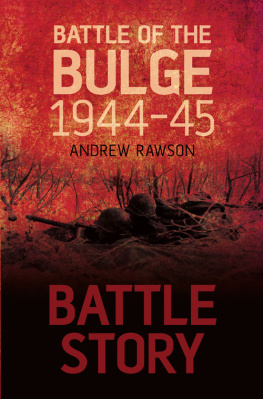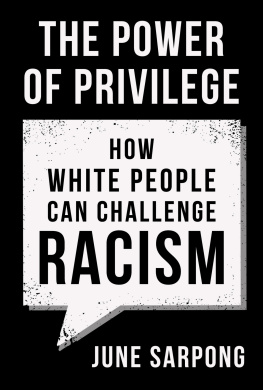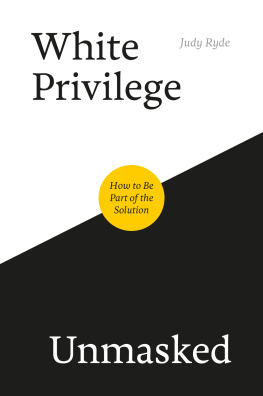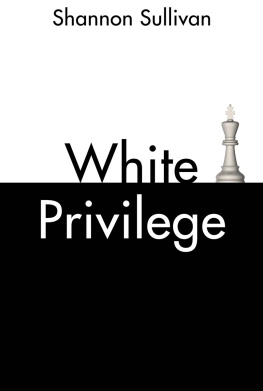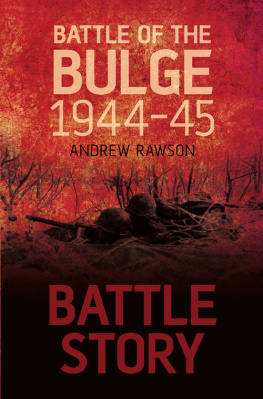Botsford - A Life of Privilege, Mostly
Here you can read online Botsford - A Life of Privilege, Mostly full text of the book (entire story) in english for free. Download pdf and epub, get meaning, cover and reviews about this ebook. City: New York;United States, year: 2003, publisher: St. Martins Press, genre: Detective and thriller. Description of the work, (preface) as well as reviews are available. Best literature library LitArk.com created for fans of good reading and offers a wide selection of genres:
Romance novel
Science fiction
Adventure
Detective
Science
History
Home and family
Prose
Art
Politics
Computer
Non-fiction
Religion
Business
Children
Humor
Choose a favorite category and find really read worthwhile books. Enjoy immersion in the world of imagination, feel the emotions of the characters or learn something new for yourself, make an fascinating discovery.

- Book:A Life of Privilege, Mostly
- Author:
- Publisher:St. Martins Press
- Genre:
- Year:2003
- City:New York;United States
- Rating:3 / 5
- Favourites:Add to favourites
- Your mark:
- 60
- 1
- 2
- 3
- 4
- 5
A Life of Privilege, Mostly: summary, description and annotation
We offer to read an annotation, description, summary or preface (depends on what the author of the book "A Life of Privilege, Mostly" wrote himself). If you haven't found the necessary information about the book — write in the comments, we will try to find it.
A Life of Privilege, Mostly — read online for free the complete book (whole text) full work
Below is the text of the book, divided by pages. System saving the place of the last page read, allows you to conveniently read the book "A Life of Privilege, Mostly" online for free, without having to search again every time where you left off. Put a bookmark, and you can go to the page where you finished reading at any time.
Font size:
Interval:
Bookmark:
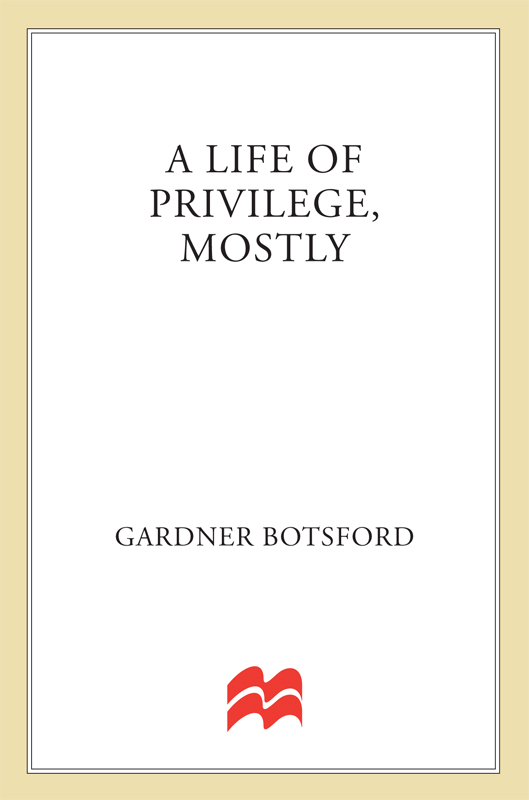

The author and publisher have provided this e-book to you for your personal use only. You may not make this e-book publicly available in any way. Copyright infringement is against the law. If you believe the copy of this e-book you are reading infringes on the authors copyright, please notify the publisher at: us.macmillanusa.com/piracy.
Contents
For Janet
MOSTLY
For anyone old enough to have been born during the First World War, like me, and damn near killed in the Second, also like me, war was a regular presence in the course of growing up. Our generation moved from a backward look at one war to a nervous forward look at a new one, waiting in the wings. The First World War took shape for us in the enthralling and terrifying stories told by our parents friends who had been Over There. (One of these gave me nightmares for a week: an infantry replacement, riding in the first truck of a long convoy, fell off the tailgate and was squashed by the next truck in line, and then squashed again by every succeeding truck.) These cautionary tales were reinforced by a steady barrage of war-inspired books aimed right at our generationbooks like The Boy Allies series, and books with less flat-footed titles, like Arnold Adair and the English Aces. The Boy Allies books, though ubiquitous, were not very believable: even our galloping imaginations could not be persuaded that the boy alliestwelve years old, like uswould have been allowed to traipse around the front-line trenches in France. But books like Arnold Adair were all too convincing, and scarier. (The Boche pilot, his twin Spandaus chattering a hymn of death, came screaming back to the attack.)
In the thirties, we moved from reminiscence and fiction to reality. The Japanese in Manchuria, the Italians in Ethiopia, Franco in Spain, Hitler wherever he wasall made the twin Spandaus seem trifling. In the last year of the decade, with the start of the Second World War, the transition was complete, and in the fortieswell, we all know about the forties. Pearl Harbor, when it came, put our generationput me, at any ratein a moral pickle. The war had to be won, of course, but war, as I had come to know, was a dangerous business. I was an outspoken hawkhad been one since Hitlers early daysbut when it came to replacing words with action, I was out of town. Every new generation will respond anew to wars great seduction, Samuel Hynes writes in his excellent book The Soldiers Tale, a consideration of many writings about war by men who did the fighting. Mr. Hynes not only was a Marine combat pilot in the Second World War but is a professor emeritus of literature at Princeton, so it is hard to argue with him, but I must say that I felt no tug of seductionnothing beyond the tug of a lousy conscience. The only thing that saved me from lasting ignominy, in fact, was the draft.
* * *
My rescue from ignominy started on September 16, 1942, at four oclock in the morning, when I switched off the alarm clock before it could ring and tried to get out of bed without waking Tass. I had a date at 6:00 A.M . with the U.S. Army Induction Center. Tass was my wife of barely two years; the bed was in my mothers house in Manhattans East Seventies, where Tass and I were more or less camping out in anticipation of this date I couldnt break.
My efforts to go off to war unnoticed were in vain, of course; Tass hadnt slept any better than I had. This was the first of some hard times for hersix months pregnant, convinced that she would have to raise a fatherless child, with no place of her own to live. I, at least, knew where I was going next.
The Induction Center, in Grand Central PalaceNew Yorks old and only exhibition hall, on Lexington Avenue at Forty-fourth Streetwas in a state of delirium. To increase space for the Army, workmen were tearing down walls all over the place, while I and scores of other recruits, each hugging a cardboard carton both practical and symbolicfor mailing home ones civilian clothes and cutting the final bonds to civilized lifewere sent from one line to another and yelled at. Most of my future comrades in arms seemed very young, and they wereeighteen or nineteen, to my venerable twenty-five. Eventually, in groups of ten or so, we were marched into the mens roomthe construction workers had left no other space availableand were sworn into service, to the music of flushing urinals. Then we were bused to Pennsylvania Station and dispatched to Camp Upton, on Long Island.
Camp Upton was the camp where one was turned from a confident, competent civilian into an insecure and incompetent Army private. The place was just as mad and seething as Grand Central Palace. Night was indistinguishable from day. Over a period of seventy-two hours, we were issued uniforms, given shots and tested for our IQs, fitted for boots and examined medically, and lectured on venereal disease and vetted for homosexuality by psychiatrists. Finally, we were sent through the shed where we would be classified as to branch of service: Artillery, Engineers, Special Services, Infantry, Signal Corps, or whatever. This was the recruits big moment; it would determine the whole course of his Army lifeeven, in fact, whether he was likely to survive. What I wanted was a nice, interesting, safe job, and I figured that I was a strong candidate for Special Services, a very safe unit that published the Army magazine Yank and escorted important foreign dignitaries around military installations and such. My hopes were plausible: I was a college graduate, I spoke French, and I had a reasonable IQ. Because of my experience as a reporter on various newspapers, and most recently on The New Yorker, I figured that I would end up on Yank. Or maybe in Army public relations, although that lacked cachet.
In any case, I was of a calm and confident disposition when I reached the head of the line and sat down at a table to be interviewed. My interviewer, a corporal, examined my chart, made little cabalistic computations, and finally put a decisive X in one of the boxes.
Whats it to be? I asked.
Infantry, he said. He might just as well have hit me with a baseball bat.
Infantry? I yelped. Not the infantry! What about the four years at Yale? What about the French? What about
At this moment, a corpulent sergeant came up and laid a hand on my interviewers shoulder. Hows it going, Bernie? he said, and looked over the pile of completed dossiers on the corporals desk. Not bad for your first day on the job. So what did you do with this guy here?
This guy was a little tough, the corporal said. I felt like a side of beef being inspected by two restaurant chefs. Hes got no qualifications on the MO list that I could see, so I put him in the infantry.
I moaned.
Let me see his chart, the sergeant said, and took a look for himself. Oh, noyou goofed on this one, Bernie, he said. Look here. See those four years of college? And Foreign Language, Spoken? No, he should have gone into Special Services, or maybe that new diplomatic branch.
I perked up. What a smart, perceptive fellow!
But what the hell, let it go, the sergeant said, dropping my chart onto the completed pile, and me, irretrievably, into the infantry.
* * *
On January 1, 1943, the day my daughter Susan was born, I was in Camp Croft, South Carolina, halfway through my basic infantry training. My request to go to New York to see the new arrival was turned down. Two weeks earlier, another request had been turned down. This one asked for a transfer out of the infantryto the Signal Corps, to the Coast Artillery, to the Norman Luboff Choir, to anywhere at all that was not the infantry. Its denial caused me to reassess my position. If I had to stay in the infantry, I reasoned, I would at least stay as an officer and be relieved of KP. This resolve came to me on Christmas Day, 1942. I was on KPspecifically, up to my elbows in one of the giant garbage cans behind the mess hall. The Army had two kinds of garbagewet garbage and dry garbageand the greatest sin against the Holy Ghost and the War Department was to put wet garbage in the dry-garbage can. Some numbskull had done just that on Christmas Eve, and the mess sergeant had ordered me to rectify the errorto get every teaspoonful of wet oatmeal and brown gravy and canned fruit cocktail and discarded bacon fat out of the dry-garbage can and into the wet-garbage can. The day was perishing cold, and the brown gravy had glued itself onto the waste-paper that was legitimately in the dry-garbage can, and the freezing oatmeal was giving me chilblains, and nobody in the whole U.S. Army felt as sorry for himself as I did on that Christmas Day. Officers, as I have said, did not have to do KP.
Font size:
Interval:
Bookmark:
Similar books «A Life of Privilege, Mostly»
Look at similar books to A Life of Privilege, Mostly. We have selected literature similar in name and meaning in the hope of providing readers with more options to find new, interesting, not yet read works.
Discussion, reviews of the book A Life of Privilege, Mostly and just readers' own opinions. Leave your comments, write what you think about the work, its meaning or the main characters. Specify what exactly you liked and what you didn't like, and why you think so.

